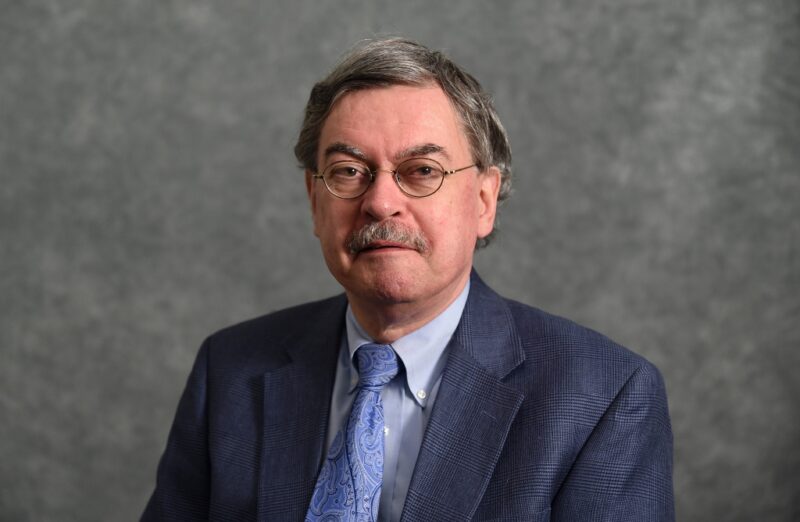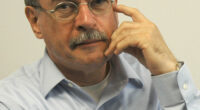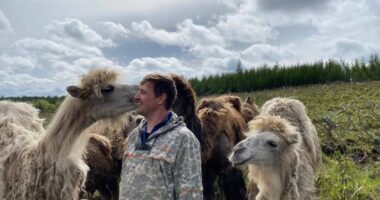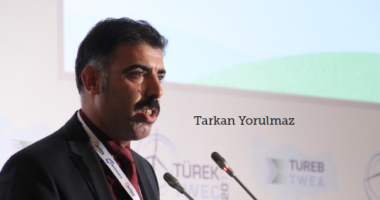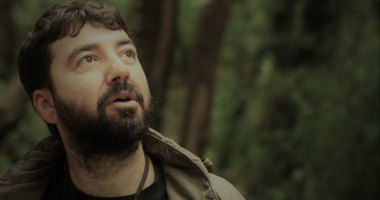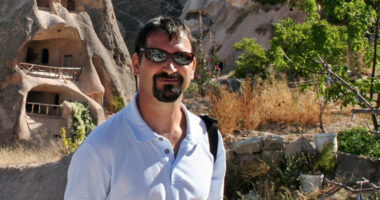A Lifetime Bioethics
At this initial dialogue, Dr. Henk Ten Have tells us his personal journey on bioethics.
Short Bio
Henk ten Have has been Director of the Center for Healthcare Ethics at Duquesne University in Pittsburgh, USA (2010-2019). He studied medicine and philosophy in the Netherlands, and worked as professor in the Faculty of Medicine of the Universities of Maastricht and Nijmegen. From 2003 until 2010 he has joined UNESCO in Paris as Director of the Division of Ethics of Science and Technology. His latest books are: Global Bioethics; An Introduction (2016), Vulnerability; Challenging Bioethics (2016), and Wounded Planet. How declining biodiversity endangers health and how bioethics can help (2019). He has edited the Encyclopedia of Global Bioethics (2016) and Global education in bioethics (2018).
I believe that your life of education that stretches out from medicine to philosophy has a story to offer us. What was your motivation to make you start such a journey?
My first interest was healthcare. I enrolled in the medical school of Leiden University in the Netherlands with the idealistic motivation to contribute to the wellbeing of people and the advancement of medical science. However, this motivation was quickly disappointed. The medical curriculum, especially in the first few years was mainly concentrated on basic sciences such as chemistry, physics, biology and statistics. There was no interest in human sciences, psychology or sociology. Of course, at that time there was no teaching in medical ethics, although some professors discussed problems such as abortion and overtreatment. I started in 1969 at the time of increasing student activism. Also, in the medical school, students became engaged in efforts to change the medical program. Slowly, changes have been made, and authoritarian program directors had to adapt and accommodate to the wishes of students. Because students were disillusioned, many became interested in other approaches. Some of us attended the public lectures in the philosophy school. These lectures were open and usually on Fridays; they were given by very enthusiastic and competent teachers who inspired many of us to follow the program of philosophy in addition to the medical curriculum. When I had finished my medical studies, I worked for some time in the Pathology Laboratory to complete my medical dissertation. At the same time, I enrolled in the philosophy program because I was interested in reflection on medical issues. Philosophy of medicine at that time did not existed in the Netherlands, although in the United States the first studies in philosophy of medicine as well as journals started to appear. I decided to concentrate on philosophy of biology, coming near to the field of medicine. The professor in that field was an inspiring and motivating teacher (a Jezuiet specialized in biology and philosophy). There was also a small institute for Theoretical Biology with an excellent library and good study facilities. My work was focused on the study of Jeremy Bentham, as an example of a philosopher who was very interested in healthcare. He was the first to argue that there should be a separate Minister of Health. He also inspired the sanitarian movement in England, emphasizing that many health problems were due to unhygienic conditions, environmental pollution and unsafe drinking water. Bentham reiterated the need for public health, focusing on the social and environmental determinants of health, when he himself died during the first cholera pandemic in 1832. He was therefore a good example of a philosopher who contributed to reflection in medicine. My doctoral dissertation was then elaborated into my PhD study so that I could combine degrees in medicine and philosophy. At that time there was no prospect of any job in this field.
Your career also followed a similar process. Can you also share with us the experience which is the starting point for every new step?
My career has been the result of a series of happy unpredictable events. I never expected or planned its successive stages. Shortly after I finished my medical studies, I received an invitation of the professor of pediatrics. I had completed a successful medical clerkship of 3 months in the children ward of a hospital in Den Haag. I was the only student and had to work day and night because many children were hospitalized with toxicosis. At that time, the Netherlands had a huge influx of immigrants from Surinam, its former colony that became independent. It was the first time that many children received Dutch milk and other food that they could not easily digest. Regardless of the work, I enjoyed this very much, even more because most children recovered. The supervising specialist must have recommended me to the professor in Leiden who offered me a complete career in pediatrics. He was astonished that I preferred to complete my philosophy studies. I remember quite well that my father also was angry that I did not accept the offer. He argued that philosophy would never bring any decent job and salary. Luckily, he was wrong, but it was pure fortune. The drive to change medical education in the Netherlands had induced the government to set up a new medical school in Maastricht with an innovative educational approach: problem-based learning. Instead of the traditional format of first basic sciences, then clinical sciences, and next clinical practice, the new curriculum was focused on clinical problems such as fatigue or headache which were then clarified and analysed by learning and applying the knowledge of relevant disciplines so that students learned to integrate scientific knowledge and practically apply it. Students also started early with clinical exercises and short clerkships. The disciplines involved were broad, including psychology, sociology, and ethics. The first chair in medical ethics in the country was established at Maastricht in 1974. The first professor was Paul Sporken, a Catholic priest with much experience in the field of moral philosophy and theology. When I had completed the philosophy degree in 1981(as well as the PhD in 1983), I was appointed in 1982 first as a lecturer, and some years later as professor at the Faculty of Medicine and the Faculty of Health Sciences of the University of Limburg, at Maastricht, the Netherlands. Initially, my main interest was philosophy and history of medicine. This was the topic of my first publications. In the beginning I was reluctant to address specific topics such as abortion because in my view the discussion often did not engage the more philosophical backgrounds in which they emerged. Paul Sporken was a well-known authority in medical ethics. He was very often invited for presentations across the Netherlands and Germany. But he became ill, and could not always fulfill his commitments. He more and more asked me to replace him with the argument that as a medical doctor I must be able to speak on topics such as abortion, contraception and euthanasia. I could not refuse, and that is how I got gradually more involved in practical ethical issues. Under Sporken’s guidance I could develop expertise in the field of medical ethics. I much enjoyed the educational system of the university, with small group teaching and individual coaching of students. There was also a close collaboration with the university hospital. Together with professor Gerard Essed we started clinical ethics teaching rounds in gynaecology and obstetrics. This model of moral case deliberation proved attractive so that in a couple of years ethics teaching expanded in other clinical departments, notably surgery, internal medicine and pediatrics/neonatology.
In 1991, I moved to the Catholic University of Nijmegen to become professor of medical ethics at the Faculty of Medical Sciences. In Nijmegen, there was a strong tradition of anthropological medicine as well as hermeneutic philosophy. It was also important that the Department of which I became the Director was the result of a merger of three separate units: medical history, ethics, and philosophy of medicine. This created a fruitful soil for broader approaches of bioethics. The clinical departments in the university hospital were much interested in ethics, so that a program of clinical ethics rounds quickly expanded in a range of departments. During my time in Nijmegen, I become more aware of the cultural and social context of bioethics. In 1987, together with some colleagues we founded the European Society for Philosophy of Medicine and Healthcare (ESPMH), and some years later, in 1998, its official journal Medicine, Health Care and Philosophy. European approaches in bioethics are specific for several reasons. One is the relevancy of history. In contrast to American colleagues, for Europeans the past is never over. History and tradition determine our present situation. Our current problems are the result of choices made some time ago. These choices have not been inevitable, and different options have been possible but have not materialized for specific reasons. Reflection on history can therefore be instructive; it can explain why some roads are travelled, and others neglected or bypassed. It is also true that history and tradition are not like coats that can be changed. The ideology of individualism, for example, that is peculiar for American culture is a historical legacy, intimately connected with the founding of the Republic. Traditions also determine medicine. An interesting example is anthropological medicine that was promoted in Nijmegen among other places. Particularly in the 1950s and 1960s, it was advocated by Frederik Buytendijk who was professor in Nijmegen, and Von Weizsäcker, Von Gebsattel, Plügge, and Christian in Germany. Their main interest was to redefine and re-interpret medicine as a science of humans. In philosophically rethinking medical activities, they used ideas from several contemporary philosophical schools, particularly phenomenology (Husserl, Merleau-Ponty), existentialism (Marcel, Sartre), and philosophical anthropology (Scheler, Gehlen, Plessner). In their writings, they tried to reflect upon human existence in its concrete specificity and ambiguity. Instead of starting from or working toward an ideal image of the human being, they attempt to identify what is anthropologically characteristic and common to human beings. But at the same time they are very much aware that any image is too abstract and clean, because in everyday reality the specific individual is always changing, pluriform, and not fully described by the designed image of man. One basic idea in the anthropological tradition is rejection of Cartesian dualism; human beings cannot be subdivided in a physical and mental compartment. Although medicine has profited from this subdivision, it also has restricted itself to the human body, studying and explaining the body’s physico-chemical machinery. This medical approach of the human being and its body should be criticized because it reduces the human being to a specific animal species, and the human characteristics of the human body to its physical level of being. Even psychosomatic medicine has not overcome dualism since any assumption of an interaction between body and mind implies a separateness of two substancies. Any demarcation between body and mind is artificial. Dualistic thinking, moreover, not only involves a reduced image of the human person, but it also has a more general tendency. Focus of critique is the general distinction made between object and subject. Von Weizsäcker, for example, strongly rejects the idea that there is an objective, real world, independent from an isolated, individual subject. A human being cannot relate him/herself to the world as an neutral observer. We cannot know the world in which we live, without at the same time changing it. Another basic idea of the anthropological tradition is that medicine is a science of the human person. The methodology of the natural sciences is not fully appropriate in the context of health care. Scientific methods used to be abstract, analytical; they proceed from a model of linear causality. These methods also focus on intervention, control and manipulation, introducing the technical point of view of the engineer into the domain of disease and suffering. Such critique does not conclude that the causal thinking and technical approach of the natural sciences should not be allowed in medicine; on the contrary, they are highly valuable and useful; but medical thinking and practising should not restrict itself to these scientific methods. Instead of rejecting scientific methods, they should be considered according to their relative value. The problem is that such methods cannot grasp what is essential to human beings. As a living organism, every person constitutes a whole, a meaningful entity, which is disconnected and distintegrated in abstract, analytical approaches. Buytendijk, for example, argues that from the mechanical viewpoint of the scientific method only those aspects can be explained of living organisms, that are not intrinsic to life itself. Anatomical, physiological and biochemical research only determines the conditions, teaches us what is possible and probable, – not what really happens. To examine the living being, we should participate in life, and focus on the purposeful coherence and interrelation, the significance of experience and conduct. If medicine wants to evolve into a science of the human person, it should overcome the usual distinction between the objective and subjective. That means that the subject should be introduced into medicine. In Buytendijk’s words: If medicine is not objective, it is impossible; if medicine is only an objective science, it is inhuman.
A significant development during my years in Nijmegen was the growth of international cooperation. I was more often invited for presentations abroad. For example, in 1995 I had presentations in the United Kingdom, the United States, Italy, Spain, China and the Czech Republic. There was also a growing number of PhD students from other countries, for example, Joachim Widder (Austria, 1999), Pierre Mallia (Malta, 2004), Ahmes Pahor (Egypt, 2006), Ana Borovecki (Croatia, 2007). An enormous boost to international cooperation was the launch of the European Commission Human Genome Project. The Department was awarded in 1992 the project “Human Genome, body, identity and property.”
We also participated in Euroscreen I and II (1994-1998), coordinated by Ruth Chadwick in the United Kingdom. In 1996, we received funding from the European Commission for the European Database Network. From 1998 to 2001, we coordinated ‘Pallium: pallitiative care ethics’, again funded substantially by the European Commission. These projects required the involvement and cooperation with European partners from a broad range of countries. They all resulted in publications. But they also created intensive networks of partner institutions. Furthermore, they showed that the Department has a strong research tradition which facilitated the acquisition of subsidies from other agencies inside and outside the Netherlands.
Another successful international effort was the initiation of educational activities. From 1992 to 2003 we organized in Nijmegen the European Bioethics Seminar, a week-long intensive bioethics summer course which attracted quite a few students from abroad. Somewhat later, in 1995, two Advanced Courses were started, on Palliative Care and Ethics, and on Genetics and Ethics. The Bioethics Seminar was expanded in 2004 into the European Master of Bioethics, a cooperation with the universities of Louvain, Madrid (later Basel) and Padova. This program was four months, requesting students to spend one month in each of the participating universities. It resulted in an official diploma. The students from a wide variety of countries (also from outside the European Union) bonded together, and I am still in touch with many of them.
In 2003, I moved to Paris, as Director of the Division of Ethics of Science and Technology of the United Nations Educational, Scientific, and Cultural Organization (UNESCO). The move to this position was in line with my growing interest in the international dimension of bioethical debate but nonetheless completely unexpected. When I was working in Nijmegen, I had never heard that UNESCO was active in the field of bioethics. It was pure coincidence that I ended up working in Paris. In August 2002, I was invited as a keynote speaker at the II Congreso Internacional de Etica de la Investigacion Cientifica. ‘Bioetica y Manipulacion Genetica’ in Bogota, Colombia.
My presentation was about “Ethical challenges of the new biotechnology”. That summer the guerilla movement FARC was attacking Bogota with missiles from the neighboring mountains. The streets were full of soldiers, and I was not allowed to walk around outside the hotel. The other invited speaker was Georges Kutukdjian from Paris. We often ended up together in the bar to have a drink. Georges then told me that he was currently Director of the Division of Ethics of Science and Technology in UNESCO and that he would retire the following year. He asked me: why don’t you apply for the job? I replied that the job most probably would be a political choice but Georges explained that they were searching for a professional bioethicist. Back home, I explored the website of UNESCO and discovered many interesting ongoing activities. I decided to submit an application letter.
For months, I did not hear anything. Suddenly one day, I was called and invited for an interview in Paris. The interview went well. I had to meet the Director-General of UNESCO, Koïchiro Matsuura, a Japanese diplomate. He was very interested in bioethical issues, and especially concerned about new technologies such as cloning and stemcells. After two weeks, I received a call that the Director-General wants to appoint me as the Director of the Division. They also insisted that I started the following week. Since I was in middle of the academic program in Nijmegen, I could not do that. The organisation was in the midst of negotations about the International Declaration on Human Genetic Data. The compromise was that from time to time I travelled to Paris to participate, and also to observe how proceedings were going, before I started and moved to Paris in the summer of 2003.
When I arrived in UNESCO, the Member States had already decided to draft a universal declaration for global bioethics principles. The main driving force were not Western countries. They had no need for bioethics activities since they already have an adequate infrastructure. The main impetus for the declaration were developing countries. They were anxious that not the same ethical standards were used in international research for example. In 1996, there was the infamous Trovan case in Nigeria. Pharmaceutical company Pfizer illegally tested a new drug against children meningitis.
They used the occurrence of an epidemic in the city of Kano as an opportunity for experimental research. But they did not properly inform the parents, arguing that informed consent was not necessary since the culture was different. They also falsified permission of an ethics committee that did not exist at that time. Scandals like this one were not uncommon. They stimulated representatives and scientists from developing countries to press for a common framework of ethical principles that should be applied everywhere.
UNESCO was the best global platform to draft such a declaration. This history shows that the argument that global bioethics imposes Western principles on other countries is wrong. In fact, these countries wanted to be protected against such imposition and ethical colonialism. The Declaration was also strongly supported by a wide range of countries. The Turkish National Commission for UNESCO made a Turkish translation of the text. I have good memories of the intensive cooperation with Professor Meral Őzgűç who as a member of the International Bioethics Committee contributed to its drafting but also organized various activities to make it known, in Ankara (2004, 2008), Istanbul (2005, 2007) and Edirne (2009). With later conferences in Ankara (2014), Istanbul (2014) and Manisa (2014) I greatly appreciated the opportunity to familiarize with the beautiful country and its hospitable people.
The Universal Declaration on Bioethics and Human Rights was unanimously adopted in 2005. The main challenge since then has been its implementation. Agreeing on principles is one thing but applying them in practices is quite another challenge. In order to encourage implementation, we started several projects. First was the creation of a database, the Global Ethics Observatory. This is a collection of different databases: experts, institutions, teaching programs, legislation, codes of conduct. The idea is that information will be provided from a wide range of countries, so that scholars who want to cooperate with colleagues, for example from Malawi, can find relevant data.
The second project was the Assisting Bioethics Committeed Project, initiated in 2005. The aim is to help member states to establish and reinforce bioethics committees at national level. The project was implemented in three stages: first, collecting information concerning the status of these committees in countries; second, providing practical guidelines for establishing committees, adopting appropriate working methods, and educating committee members; third, strengthening newly established committees with technical support. Several guidebooks have been published. Technical support has been provided to 14 countries, all in Africa and Latin America.
The most extensive and broad effort has been undertaken by UNESCO with the launch of its Ethics Education Program in 2004. This Program aims at the integration of ethics into scientific education in all Member States. It has been built up in several steps. The first step was focused on providing information. Policy-makers at governmental levels, but also in universities and academies of science do not often have adequate information about what exist and what is lacking in the field of bioethics education. It is therefore necessary to identify existing ethics programs as well as expertise, and to exchange experiences. In order to establish a database of ethics teaching programs, standardized forms have been developed to describe teaching programs, so that the substance of each program can be examined and various programs analyzed and compared.
Within a group of countries, experts are identified who actually are teaching in a university setting. The experts were invited to take part in a regional meeting; in advance they were asked to provide detailed data on their programs and to return the descriptive forms so that existing programs can be discussed during the meeting. Often, it was the first time that experts have insight in the programs taught by their colleagues in the same and neighboring countries. In the meeting, information could be clarified, difficulties identified and problems discussed with colleagues.
With the empirical data obtained and clarified, it was easier to subsequently explore what would be necessary for the future, and how international collaboration could help to promote ethics teaching. Regional expert meetings have been organized in Budapest (October 2004), Moscow (January 2005), Split (November 2005), Muscat (November 2006), Istanbul (March 2007), Marrakesh (June 2008), Abidjan (December 2008), Dakar (March 2009) and Kinshasa (July 2009). At that time, 235 teaching programs have been validated and entered into the UNESCO Global Ethics Observatory database, covering 43 countries, mainly from Central and Eastern Europe, the Arab region and Africa. One common finding was the vulnerability of ethics teaching programs. Often, the programs were taught by enthusiastic teachers but there was no firm institutional basis, nor any systematic effort to create a future generation of ethics teachers.
As a second step, an ethics teacher training course has been set up to remedy these problems and to make sure that a new generation of professionals and scientists would be encouraged to teach ethics in a professional manner. This ethics teacher training has taken place in Romania (2006), Kenya (2007), Slovak Republic (2007), Saudi Arabia (2007), Belarus (2008), Croatia (2010 and 2011), and Serbia (2011). The focus of the courses was on didactic skills required for ethics teaching rather than on content issues of bioethics.
The third step in the Ethics Education Program has been the development of a proposal for a core curriculum in bioethics, on the basis of the Universal Declaration on Bioethics and Human Rights, adopted by all Member States of UNESCO in 2005. Because there is consensus on the fundamental principles of bioethics in the Declaration, this can be considered as a basis for what should be minimally included in a bioethics course. An Advisory Expert Committee on the Teaching of Ethics, composed of members of the International Bioethics Committee and the World Commission on the Ethics of Scientific Knowledge as well as representatives of the UNESCO Chairs in Bioethics, the Academy of Sciences for the Developing World (TWAS) and the World Medical Association (WMA) developed the proposal with teaching units related to the principles of the Declaration.
For each unit, the possible objectives and contents are described, and proposals for teaching materials, resources and assessment methods are provided. The proposal has taken into account the recommendations of a consultation meeting with 30 experts, mainly from developing countries. The proposal has also been tested in a number of universities all over the world (Argentina, Armenia, Belarus, Israel, Japan, Moldova and the Russian Federation). Based on these experiences, the proposal has been revised and updated. It was translated into Arabic, French, Russian and Spanish. The core bioethics course can assist scholars who want to establish teaching programs in bioethics in various cultures and regions. Also books with cases from various countries are available to be used in the units of the course.
Fifteen years later, the impact of the Declaration is still limited. Many scholars do not know that it exists. UNESCO efforts to disseminate and propagate the Declaration are hampered by a reduced organizational budget. However, the Declaration is work in progress. The adoption of a foundational text in itself does not guarantee that it will be applied in various contexts. Continuous efforts will be needed to expand its use and application.
Because it is mandatory at UNESCO to retire with 58 years of age, when I was approaching this age limit, I wanted to return to a university to teach and write, elaborating the concept of global bioethics. However, at that age, it is virtually impossible to join a university in Europe. They will not tell you but they do not hire scholars at that age. In the United States, such age discrimination is not allowed. Professor Jos Welie,
One of my first students at Maastricht University, and now working at Creighton University in Omaha contacted Charly Dougherty who at that time was the President of Duquesne University, and earlier, as experienced bioethicist, working at Creighton University. Charly was very interested since Duquesne University was established in the 19th century in Pittsburgh by the Congregation of the Holy Ghost, a Catholic missionary order with high interest in activities in developing countries, particularly in Africa. He saw an opportunity to disseminate the idea of global bioethics, so I was offered a job at Duquesne University as the Director of the Center for Healthcare Ethics which I accepted in 2010.
At Duquesne University I had ample opportunities to do research. I first wrote the book Global Bioethics as a general introduction in this field. It elaborated the ideas of Potter to have a broader concept of bioethics. The next step was the book Vulnerability. In this work, the main argument is that bioethics need to focus on the social context, especially the fact that globalization leads to increasing vulnerability. However, this notion is often translated in mainstream bioethics as deficiency or lack of autonomy. This neglects that vulnerability is not an individual affair but most often the result of the conditions and circumstances in which people live.
The third step, to complete the trilogy, was an elaboration of the ecological dimension of global bioethics. This new book Wounded Planet. How declining biodiversity endangers health and how bioethics can help is just published by Johns Hopkins University Press. The main argument is that loss of biodiversity and climate change are seriously threatening planetary health. Whatever one thinks about climate change, it endangers health for everybody, and leads to enormous problems with water, food, drugs, and disease.
The Center for Healthcare Ethics in Pittsburgh has a graduate program in healthcare ethics. Annually a group of students from various countries has been enrolled. The first two years they do coursework. I used to teach courses on Global bioethics, Public health ethics, Research ethics, and End-of-life ethics. After the comprehensive examination, students started to work on their dissertation, first making a proposal, and after approval, the dissertation, so that after 4 years they were awarded the Ph.D. degree
During the last two years most students started to work, usually in clinical settings. With their degree, nearly all of them found a job in the field of ethics. Many healthcare facilities in the United States are hiring ethicists; as consultants and members of ethics committees they are involved in case discussions, developing guidelines and improving communication. The institutions are conscious that in this way they can avoid many cases of litigation and juridical procedures since ethical problems frequently arise due to miscommunication and lack of information. Students from foreign countries (e.g. Saudi Arabia, Syria, Turkey, Nigeria and Uganda) mostly returned to their native countries or remained in the U.S. as experienced ethicists.
Ethics education has always been one of my interest. It is unavoidable to have broader and richer teaching for medical students and health professionals. This is in my view the best way to spread the ideas of global bioethics to a new generation of health professionals. However, ethics education is often not taken seriously. Academic careers are based on research and publications while inspiring teachers are often not seriously esteemed.
There also is not a serious effort to make ethics teaching more professional. Most ethics teaching is done by health professionals themselves which is excellent but often these teachers lack sufficient experience and expertise in ethics. They use the existing textbooks and publications, repeating the message and principlism of mainstream bioethics. There hardly is any reflection on broader issues and fundamental questions. Pragmatism requires solutions and answers. Many moral issues, nonetheless, are difficult to answer. They involved questions of meaning and destiny, especially when people have serious and chronic diseases, or are facing death and suffering.
The International Association for Education in Ethics was established in 2011 with the aim to create a platform for scholars interested in ethics teaching (not only in bioethics but in other areas of applied ethics also). By bringing them together, they could exchange information about teaching programs and improve their expertise. The same idea was behind the launch of the International Journal for Ethics Education in 2016.
I retired from the university in 2019 and returned to the Netherlands. I am still active as editor-in-chief of the journals Medicine, Healthcare and Philosophy as well as the International Journal for Ethics Education. I am also active in the Board of the International Association for Education in Ethics (of which I was the Executive Secretary until 2020). I am working on several books, especially in the field of global bioethics. From time to time I am involved in online teaching activities (e.g. teaching a course on Global Bioethics as part of a MA program in Global Bioethics, organized by Anahuac University in Mexico). Hopefully, I will be able to continue the promotion of global bioethics.
